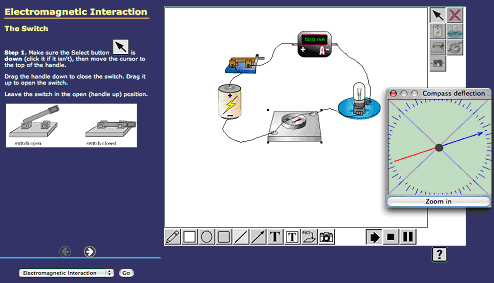What’s the Best Study Strategy for You?The most important step to increasing your ability to learn is to become aware of how you learn. Try to monitor your thoughts and feelings while learning. Then try to use a study strategy that best fits with your learning style, or combine the strategies if you feel you have more than one learning style. Remember that the goal is to apply the ideas you have learned to new situations. Learning Styles and Study Strategies
Linguistic Create stories using the ideas to be learned, for example write a science fiction story or a detective story incorporating the ideas. Summarize key concepts and their supporting evidence. Flashcards may help recall definitions. For example, you might write a science fiction story in which an electromagnetic interaction is used and explained within the story. Remember to support claims made in the story with evidence. See for example the stories in Chronicles of the Wandering Star.
Use charts and maps when possible, for example concept mapping. Outline what you are studying. Categorize and classify information. For example you might outline the information for an electromagnetic interaction as done below:
Focus on the learning objectives, for example the key questions of each activity or the key cycle question for each cycle. Close your eyes and try to visualize how answers to the activity key question connect to the cycle key question. Create a map of the ideas and how they are connected, for example a concept map. Practice applying ideas to new situations. Practice using the simulator. Draw pictures, charts, and/or graphs to assist in your understanding. For example you might use the simulator to explore the electromagnetic interaction by observing what affect more batteries or more loops may have on the deflection of a compass needle in a closed circuit.
Write a song using the key ideas being learned – either create your own music or paraphrase a song you know well and then sing it! Try to include connections between ideas and supporting evidence for ideas. Create rhymes with rhythmic cadences using the ideas. Listen to music without words while you are studying. For example you might write a rhyme or riddle which has a rhythmic cadence about infrared radiation
Example of paraphrasing a song... sing this to the tune of Jingle Bells:
Schedule when you study. Act things out when possible. Find real life examples. Construct models and maps. Use the simulator. For example you could create a dance that describes different types of chemical bonding. You could create a performance that depicts the interaction between a swimmer and water using people for the water and the swimmer.
Work with someone. Discuss ideas with friends. Teach someone the ideas. Create a study group. For example you might want to teach a friend about the electromagnetic interaction.
Keep a journal about what you are learning. Find a quiet place to study alone. Create your own individual project. For example you could design your own scientific investigation exploring the motor answering questions such as: if you increase the number of turns in the coil of a motor how will that affect how rapidly the motor turns?
Try to apply the ideas to natural settings. Study outdoors. For example you might calculate the average speed of a bug as it moves across the grass or study the mechanical interactions between an animal and an object in its environment.
|
|
